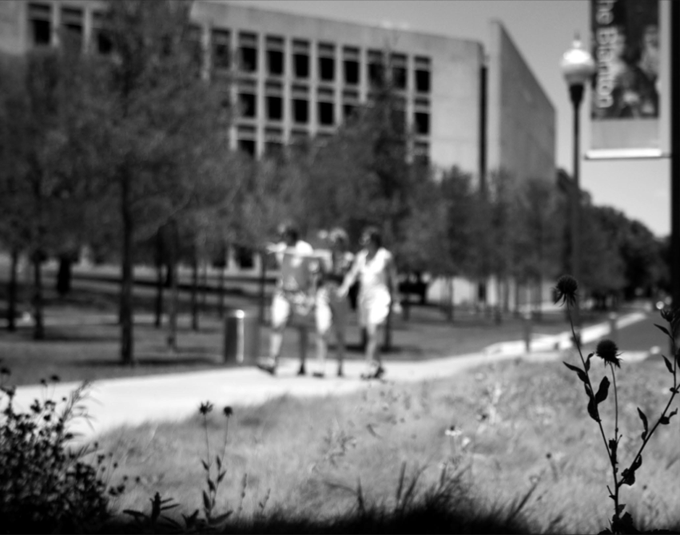
Of ants and demigods
The Daily Texan, 4A
July 24, 2006
William chose not to believe in the god of his people.
Sure, he believed in an omnipotent superior, a creating hand that made the sugars he ate and the vast world he inhabited. Surely such civilization, such progress, was not the work of ants alone.
But he could not believe in the vengeful god they called Swirl. (It is nearly impossible to translate the twisting motion of antennae into a similarly terrifying English word, so Swirl will have to suffice.)
William had heard shocking stories about Swirl from neighboring ants in neighboring hills. Every seventh sun, Swirl would deliver a predictably punishing fury of wind and pain, a tempest of spinning metal blades and grass trimmings.
They remained stories to William -- he had never seen Swirl with his own compound eyes. He inhabited an ant hill in a patch of weeds and overgrown grass just north of a new building, the Blanton Museum of Art.
Though other sections of grass in the vicinity of the Blanton were mowed on a regular basis, William's island, bordered on all sides by concrete sidewalks, had been untouched by maintenance crews thus far in his short life. Swirl remained an intangible threat, an unknown horror of which neighboring ants would weave stories.
Safe and secure, William spent most of his time lounging in the utopia of wildflowers and untrimmed weeds that kept his people well-fed and comfortable. Life was simple and slow: He found more in common with leisure ants than worker ants. There was time to stop and admire art and the diversity of insects and plants that faced no threat from Swirl.
But refugees from lands oppressed by Swirl's terror began finding their way into William's homeland. At first he welcomed them, but he soon began to resent the sheer volume of their presence.
The refugees cramped William's favorite pools on sprinkler heads. They beat him to discarded orange peels. The refugees squatted in makeshift, poorly constructed hills on the outskirts of his colony, congesting pathways and making food harder to claim.
Even more, he resented his people's response. "This wave of immigrants brings with it a far greater threat of Swirl's metallic vengeance!" ant leaders would proclaim. "We must drive out the invaders by any means necessary before Swirl kills us all!"
Fearing that which they could not control, William's fellow colonists became their own Swirls, inflicting blind punishment on an already battered group of the same species.
So as his people built walls to keep out the refugees, William watched. As his people recruited young ants and prepared for an offensive on the outlying refugee camps, William watched. As his friends eagerly spoke of protecting their birthright, their homeland, and tearing out the tarsal claws of any refugee that came within 400 paces of their colony, William watched.
And as his ant hill succumbed to ant-on-ant violence, delivering more death than any manifestation of Swirl could muster, William began to believe in the god he once renounced and prayed it would rain down a cleansing fury on his brutal people.
|